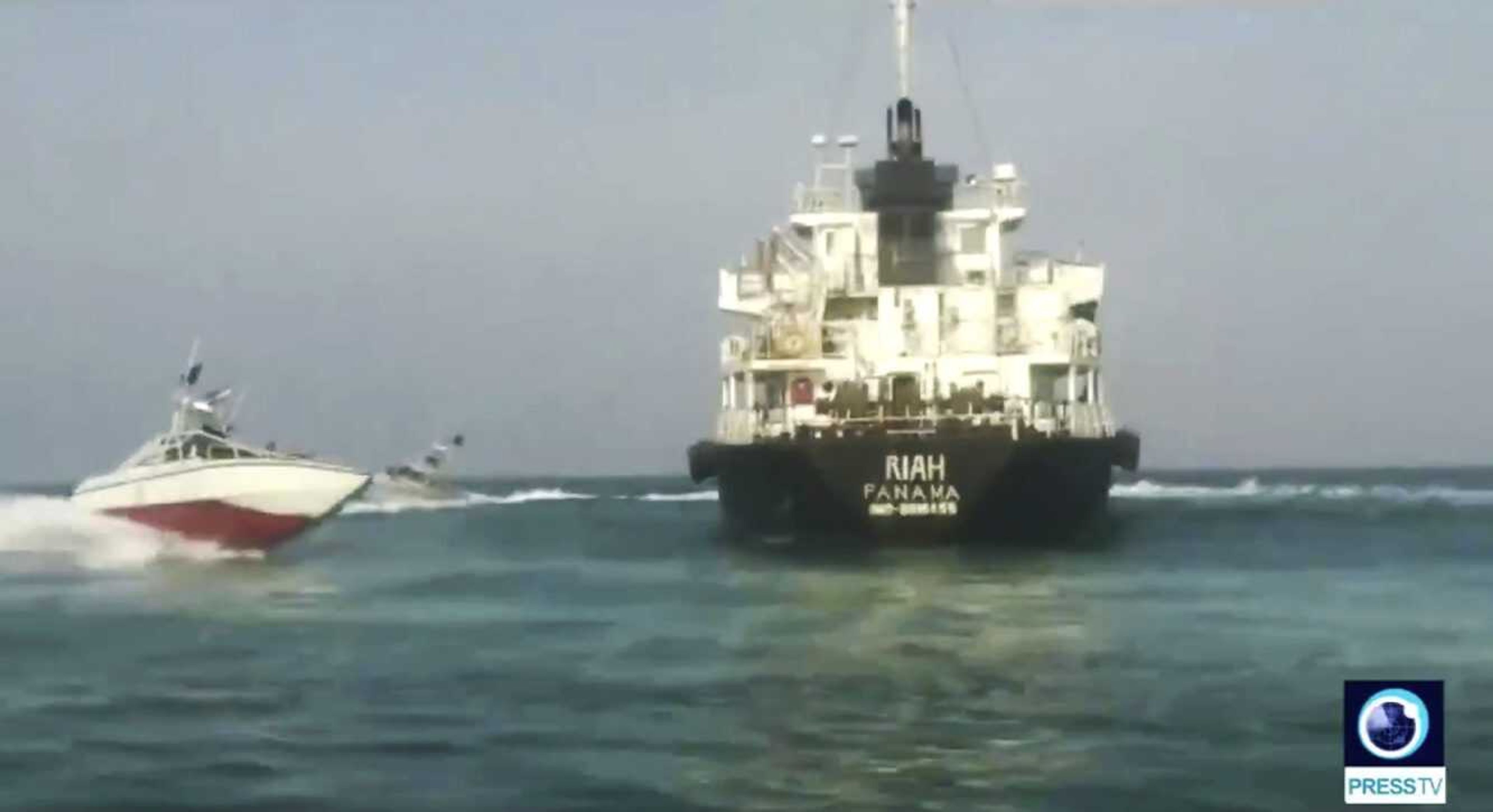UK: two vessels have been seized by Iran
LONDON -- Britain's foreign secretary said Iranian authorities seized two vessels Friday in the Strait of Hormuz, actions signaling intensifying tensions in the strategic waterway becoming a flashpoint between Tehran and the West. Foreign Secretary Jeremy Hunt said one of the seized ships was British-flagged and the other sailed under Liberia's flag. Iran's semi-official Fars news agency tweeted shortly after Hunt's statement the second tanker had left Iran's territorial waters...
LONDON -- Britain's foreign secretary said Iranian authorities seized two vessels Friday in the Strait of Hormuz, actions signaling intensifying tensions in the strategic waterway becoming a flashpoint between Tehran and the West.
Foreign Secretary Jeremy Hunt said one of the seized ships was British-flagged and the other sailed under Liberia's flag. Iran's semi-official Fars news agency tweeted shortly after Hunt's statement the second tanker had left Iran's territorial waters.
"These seizures are unacceptable," Hunt said as he prepared to enter an emergency government meeting Friday night. "It is essential that freedom of navigation is maintained and that all ships can move safely and freely in the region."
The seizing of the British tanker marked perhaps the most significant escalation since tensions between Iran and the West began rising in May. At that time, the U.S. announced it was dispatching an aircraft carrier and additional troops to the Persian Gulf, citing unspecified threats posed by Iran.
The ongoing showdown has caused jitters around the globe, amid fears any misunderstanding or misstep by either side could lead to war.
Details of what took place Friday remained sketchy. Iran said earlier Friday it had seized a British oil tanker in the Strait of Hormuz, which is at the mouth of the Persian Gulf and serves as the passageway for one-fifth of all global crude exports.
The tanker Stena Impero was taken to an Iranian port because it was not complying with "international maritime laws and regulations," Iran's Revolutionary Guard declared.
Britain's Royal Marines assisted in the seizure of an Iranian oil supertanker on July 4 by Gibraltar, a British overseas territory off the southern coast of Spain.
Britain said it would release the vessel if Iran could prove it was not breaching European sanctions on oil shipments to Syria. The seized vessel was loaded with more than 2 million barrels of Iranian crude oil.
A statement from Stena Bulk, which owns the tanker, said it was unable to contact the ship after it was approached by unidentified vessels and a helicopter in the Strait of Hormuz.
The company said the tanker, with 23 crew members aboard, was in international waters when it was approached but subsequently appeared to be heading toward Iran.
U.K. Chamber of Shipping chief executive Bob Sanguinetti said the seizure represented an escalation in tensions in the Persian Gulf and made it clear more protection for merchant vessels was urgently needed.
He claimed the action is "in violation of international regulations which protect ships and their crews as they go about their legitimate business in international waters."
The British government should do "whatever is necessary" to ensure the safe and swift return of the ship's crew, Sanguinetti said.
Crude oil prices climbed following Iran's announcement as traders worried the escalating tensions could affect crude supplies. The price of oil was lower earlier in the day. U.S. stocks also fell as traders sold to avoid holding stocks into the weekend. The S&P 500 dropped 0.6% Friday after being up 0.4% in the morning.
The incident came just two days after Washington claimed a U.S. warship downed an Iranian drone in the Strait. Iran denied it lost an aircraft in the area.
President Donald Trump said U.S. officials would talk with Britain about the unfolding crisis.
"This only goes to show what I'm saying about Iran: Trouble, nothing but trouble," he said.
Trump said "Iran is showing their colors" and "in big trouble right now" because its economy has been crippled by U.S. economic sanctions.
The U.S. has asked Mideast allies such as Saudi Arabia and the United Arab Emirates in past weeks to contribute financially and militarily to a Trump administration proposal called the Sentinel Program -- a coalition of nations working with the U.S. to preserve maritime security in the Persian Gulf and keep eyes on Iran.
On June 20, Iran shot down an American drone in the same waterway, and Trump came close to retaliating but called off an airstrike at the last moment.
Tensions in the region have been escalating since the Trump administration withdrew from Iran's 2015 nuclear deal with world powers and imposed sweeping sanctions on Iran, including its oil exports, that have hit its economy hard.
Iran's government has desperately tried to get out of the chokehold, appealing to the other partners in the deal, particularly Europe, to pressure the U.S. to lift the bruising sanctions. Europe wants to maintain the nuclear deal, but has not been able to address Iranian demands, particularly concerning the sale of oil, without violating U.S. sanctions.
Connect with the Southeast Missourian Newsroom:
For corrections to this story or other insights for the editor, click here. To submit a letter to the editor, click here. To learn about the Southeast Missourian’s AI Policy, click here.









